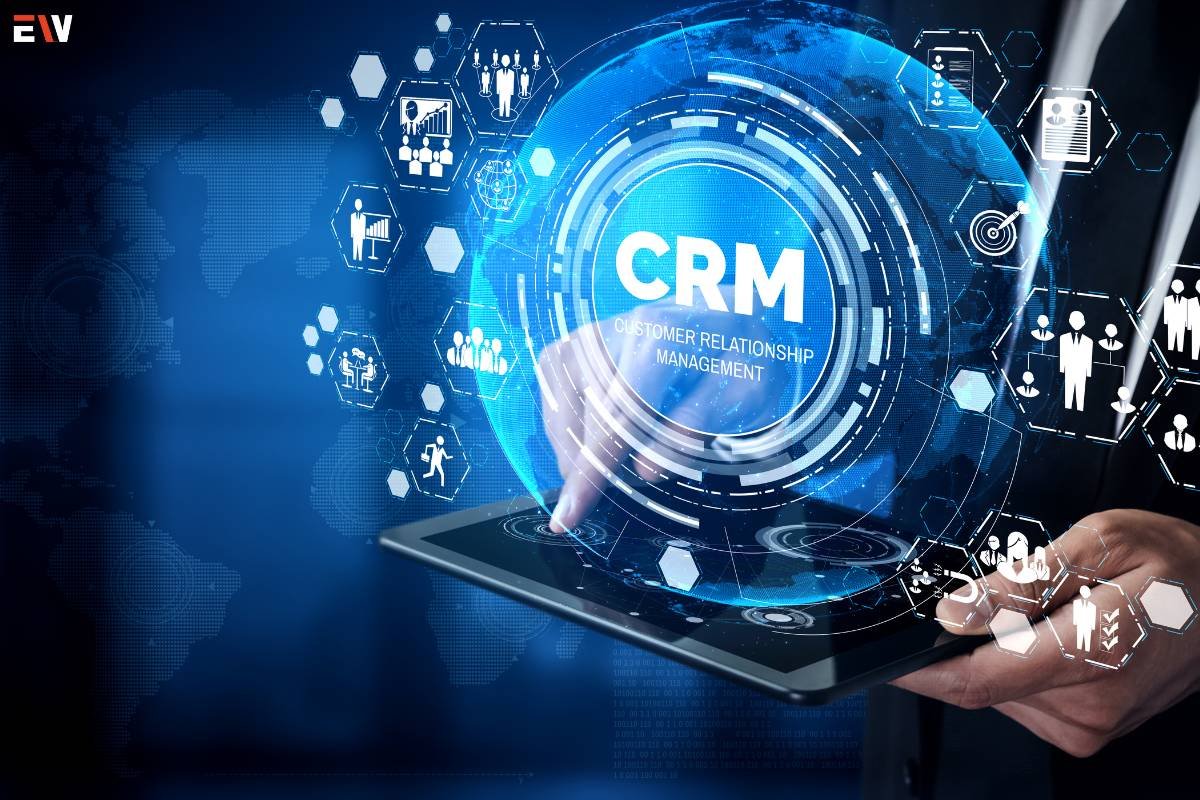Client Relationship Management (CRM) is a cornerstone of successful business operations in the contemporary landscape. In a world where customer expectations are higher than ever, effective CRM strategies can make the difference between a one-time transaction and a long-term, mutually beneficial relationship. In this article, we will explore the key concepts and strategies involved in Client Relationship Management and how businesses can leverage them for sustained success.
21 Client Relationship Management Tips You Should Know
1. Understanding Client Relationship Management (CRM)
Client Relationship Management is more than just a software solution; it’s a holistic approach to managing interactions with current and potential clients. At its core, CRM involves building and maintaining relationships to better understand the needs and behaviors of clients. This understanding enables businesses to provide more personalized and effective solutions, ultimately fostering loyalty and repeat business.
2. Implementing CRM Software Solutions
Investing in CRM software is a fundamental step in modernizing and streamlining client management processes. CRM software centralizes client data, streamlines communication, and automates various tasks, allowing businesses to focus on meaningful interactions. Selecting the right CRM software that aligns with your business needs is crucial for optimizing processes and enhancing customer satisfaction.
3. Collecting and Analyzing Client Data
One of the key benefits of CRM is the ability to collect and analyze vast amounts of client data. This data provides valuable insights into client preferences, behaviors, and interactions with the business. Utilize this information to tailor your products or services, anticipate client needs, and create personalized marketing campaigns that resonate with your target audience.
4. Effective Communication Strategies
Communication is the backbone of successful client relationships. Establish clear communication channels and ensure timely and relevant interactions with clients. Utilize CRM tools to track communication history, set reminders for follow-ups, and personalize communication-based on individual client preferences. Consistent and transparent communication builds trust and strengthens the client-business relationship.
5. Personalization and Customization
Clients appreciate a personalized experience that caters to their specific needs. Leverage CRM data to tailor your offerings, communications, and marketing efforts. Address clients by name, recommend products based on their purchase history, and provide personalized incentives. A customized approach demonstrates that your business values each client as an individual, fostering a deeper connection.
6. Customer Feedback and Surveys

Actively seek customer feedback through surveys and other channels. CRM software can assist in gathering and analyzing this feedback, providing valuable insights into client satisfaction and areas for improvement. Use this information to adapt and enhance your products or services, demonstrating a commitment to continuous improvement and responsiveness to client needs.
7. Cross-Selling and Upselling Opportunities
CRM tools can identify opportunities for cross-selling and upselling based on client behavior and preferences. Identify complementary products or services and present them to clients strategically. This not only increases revenue but also demonstrates an understanding of the client’s needs, reinforcing the value of the relationship.
8. Employee Training and Involvement
Effective client relationship management extends beyond software and processes; it involves the people behind the interactions. Invest in employee training to ensure that your team understands the importance of CRM and how to utilize the tools effectively. Encourage a client-centric mindset and empower employees to go above and beyond in meeting client expectations.
9. Resolve Issues Promptly
Issues and conflicts are inevitable in any business relationship. What sets successful businesses apart is their ability to address and resolve issues promptly. Utilize CRM software to track and manage client concerns, ensuring that they are addressed in a timely and satisfactory manner. A swift and effective resolution can turn a potential negative experience into a positive one, building trust in the process.
10. Measuring and Evaluating CRM Success
Regularly assess the effectiveness of your CRM strategies by setting key performance indicators (KPIs) and measuring results. Analyze client retention rates, customer satisfaction scores, and revenue generated from existing clients. Use this data to refine your CRM approach continually and adapt to changing client needs and market dynamics.
11. Embrace a Multichannel Approach
In today’s interconnected world, clients engage with businesses through various channels, including social media, email, phone, and in-person interactions. Implement a multichannel CRM strategy to ensure seamless communication across all touchpoints. Integrate social media monitoring tools into your CRM system to stay abreast of client sentiments and promptly respond to inquiries or feedback across platforms.
12. Create Loyalty Programs

Loyalty programs are an effective way to reward clients for their continued business. Integrate loyalty programs into your CRM strategy to track and reward client engagement. Tailor incentives based on individual client preferences and purchase history, encouraging repeat business and transforming satisfied clients into brand advocates.
13. Segmentation for Targeted Marketing
Segmentation is a powerful feature of CRM systems that allows businesses to categorize clients based on various criteria such as demographics, buying behavior, and preferences. Use this segmentation to craft targeted marketing campaigns. Tailoring your messaging to specific client segments enhances relevance and increases the likelihood of capturing their attention and driving conversion.
14. Collaboration Across Teams
Effective client relationship management requires collaboration among different teams within the organization. Ensure that sales, marketing, and customer service teams have access to the same client data and can seamlessly collaborate. This alignment enables a unified approach to client interactions and ensures that everyone in the organization is working towards the common goal of client satisfaction.
15. Stay Agile and Adaptable
Market dynamics and client preferences are constantly evolving. A successful CRM strategy is one that can adapt to these changes. Stay agile by regularly reviewing and updating your CRM processes and technology. This adaptability ensures that your business remains responsive to emerging trends and can swiftly adjust strategies to meet evolving client expectations.
16. Integrate Customer Support Tools
Integrating customer support tools with your CRM system streamlines issue resolution and enhances the overall client experience. Provide your customer support team with access to comprehensive client profiles, ensuring they have a complete understanding of the client’s history and needs when addressing concerns. This integrated approach contributes to quicker problem resolution and strengthens client trust.
17. Utilize Predictive Analytics
Leverage the power of predictive analytics within your CRM system to anticipate client needs and behaviors. Predictive analytics uses historical data and machine learning algorithms to forecast future trends. By understanding potential client actions, businesses can proactively tailor their offerings, improving client satisfaction and staying ahead of the competition.
18. Encourage Client Advocacy
Happy clients can be your most powerful advocates. Encourage and facilitate client advocacy by providing easy-to-use referral programs. CRM systems can help track and reward clients for referring new business, turning satisfied clients into enthusiastic brand ambassadors. This word-of-mouth marketing can significantly contribute to business growth and reputation.
19. Regularly Update Client Profiles

Client information is dynamic, with preferences, contact details, and other relevant data subject to change. Regularly update client profiles in your CRM system to ensure accuracy. An up-to-date client database enables more effective communication and ensures that your interactions are based on the most recent and relevant information.
20. Invest in Cybersecurity
As businesses increasingly rely on digital tools and platforms for client management, cybersecurity becomes paramount. Protecting client data is not only a legal requirement but also crucial for maintaining trust. Invest in robust cybersecurity measures to safeguard sensitive client information and ensure compliance with data protection regulations.
21. Offer Educational Resources
Position your business as a valuable resource for clients by providing educational content relevant to their needs and interests. Use your CRM data to identify topics of interest and create informative content such as blogs, webinars, or whitepapers. This not only demonstrates your expertise but also strengthens the client-business relationship by providing added value beyond your products or services.
Conclusion
Mastering Client Relationship Management is an ongoing process that requires a combination of strategic thinking, technological integration, and a genuine commitment to understanding and meeting client needs. By implementing these additional strategies alongside the core principles of CRM, businesses can build lasting relationships, foster client loyalty, and differentiate themselves in a competitive market. Remember, the key to successful CRM is a dynamic and adaptive approach that continuously evolves to meet the ever-changing landscape of client expectations and market dynamics.










